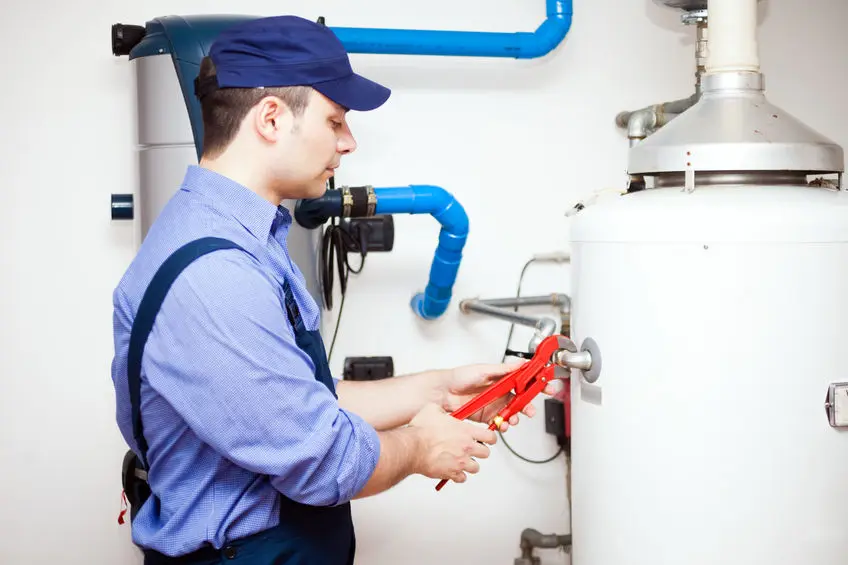A reliable water heater is essential for the comfort and functionality of your home. From hot showers to clean dishes and laundry, the importance of a well-functioning water heater cannot be overstated. When it’s time for a replacement, choosing the right model can feel overwhelming, given the wide variety of options available. The right choice depends on factors like your household’s hot water needs, energy efficiency goals, and budget.
This article guides you through the key considerations and options for selecting the ideal water heater replacement for your home.
1. Recognizing the Need for a Replacement
Before choosing a new water heater, it’s important to determine if your current one truly needs replacing.
Signs It’s Time for a New Water Heater
- Age: Traditional tank water heaters typically last 8–12 years, while tankless models can last 20 years or more.
- Inconsistent Water Temperature: Frequent fluctuations or a lack of hot water are signs of a failing system.
- Rising Energy Bills: An older unit may struggle to heat water efficiently, leading to higher utility costs.
- Visible Corrosion or Leaks: Rust or water pooling around the tank indicates serious damage.
If any of these issues apply to your water heater, it’s time to consult a plumber to discuss replacement options.
2. Understanding Your Options
Water heaters come in several types, each offering unique advantages. Understanding these options helps you make an informed choice.
Common Types of Water Heaters
- Storage Tank Water Heaters: The most traditional option, these units heat and store water in a tank. They are budget-friendly but less energy-efficient.
- Tankless Water Heaters: Also known as on-demand water heaters, these units heat water as needed, providing endless hot water while saving space and energy.
- Heat Pump Water Heaters: Highly energy-efficient, these units use electricity to transfer heat from the air to the water.
- Solar Water Heaters: These rely on solar panels to heat water, making them an eco-friendly option for sunny climates.
Each type has its pros and cons, so it’s essential to weigh them against your household’s specific needs.
3. Determining the Right Size
Selecting a water heater with the correct capacity is crucial for meeting your home’s hot water demands without wasting energy.
Factors to Consider
- Household Size: Larger families generally require water heaters with greater capacity.
- A 30–40 gallon tank is typically sufficient for 1–2 people.
- A 50–80 gallon tank is better suited for households of 4 or more.
- Peak Usage Times: Consider how much hot water your household uses during peak hours, such as mornings.
- Flow Rate: For tankless water heaters, check the gallons-per-minute (GPM) rating to ensure it can handle multiple simultaneous uses, like showers and laundry.
Proper sizing ensures that you have enough hot water without overspending on energy.
4. Prioritizing Energy Efficiency
An energy-efficient water heater not only reduces your environmental impact but also lowers monthly utility bills.
Efficiency Ratings to Look For
- Energy Factor (EF): This measures a water heater’s overall efficiency. The higher the EF, the more efficient the unit.
- ENERGY STAR Certification: Units with this label meet strict efficiency guidelines set by the EPA, offering significant savings over standard models.
- Standby Heat Loss: Tank models lose some heat when water is stored, so look for well-insulated tanks to minimize this loss.
Choosing an energy-efficient model is a smart investment that pays off over time.
5. Considering Installation Requirements
The installation process for a new water heater varies depending on the type and model you choose.
Installation Considerations
- Space Requirements: Tankless water heaters save space and can be installed on walls, while storage tanks require more floor space.
- Venting Needs: Gas water heaters may require ventilation for exhaust gases, whereas electric models do not.
- Electrical or Gas Upgrades: Some units may require modifications to your home’s electrical or gas systems.
Consulting a professional plumber ensures that your chosen water heater can be installed efficiently and safely.
6. Comparing Operating Costs
Beyond the upfront cost of the unit, it’s important to consider long-term operating expenses when selecting a water heater.
Cost Factors to Evaluate
- Initial Investment: Tankless and solar models often have higher upfront costs but lower operating expenses.
- Energy Costs: Gas water heaters typically cost less to operate than electric models, but regional energy rates can affect this comparison.
- Maintenance: Tank models may require periodic flushing to remove sediment, while tankless units need descaling in hard water areas.
Understanding these costs helps you choose a model that fits your budget and long-term financial goals.
7. Evaluating Features and Technology
Modern water heaters come with advanced features that enhance convenience, performance, and safety.
Features to Look For
- Smart Controls: Wi-Fi-enabled models allow you to monitor and adjust settings remotely.
- Anti-Scale Devices: These reduce mineral buildup, extending the lifespan of the unit.
- Automatic Shut-Off: Built-in safety features stop the flow of water in case of leaks or malfunctions.
These additional features can add value to your water heater and simplify its operation.
8. Working with a Professional Plumber
Choosing and installing a water heater is a significant investment, and working with an experienced plumber ensures a seamless process.
Benefits of Professional Assistance
- Expert Recommendations: Plumbers assess your home’s specific needs and recommend the most suitable options.
- Efficient Installation: Professionals handle complex installation tasks, ensuring compliance with safety standards.
- Ongoing Support: Regular maintenance services help extend the lifespan of your water heater.
Maroon Plumbing offers expert guidance and installation services, making the process of replacing your water heater hassle-free.
9. Preparing for the Transition
Before your new water heater is installed, there are steps you can take to prepare your home and minimize disruptions.
Preparation Tips
- Clear the Area: Remove any obstacles near the installation site to give the plumber easy access.
- Plan for Water Shutdown: Be aware that water service may be temporarily interrupted during installation.
- Dispose of the Old Unit: Discuss disposal options with your plumber to ensure the old water heater is handled properly.
Being prepared ensures a smooth and efficient installation process.
10. Maintaining Your New Water Heater
Once your new water heater is installed, regular maintenance is key to keeping it running efficiently and extending its lifespan.
Maintenance Tips
- Flush the Tank Annually: For storage tanks, flushing removes sediment that can reduce efficiency.
- Inspect Anode Rods: Replace the rod when it shows significant wear to prevent tank corrosion.
- Monitor Performance: Keep an eye on water temperature and pressure to identify potential issues early.
Routine care protects your investment and ensures reliable hot water for years to come.
Conclusion
Choosing the right water heater replacement is an essential step in maintaining your home’s comfort and efficiency. By considering factors like type, size, energy efficiency, and operating costs, you can select a model that meets your needs and fits your budget.
For expert assistance with water heater replacement, Maroon Plumbing provides professional advice and installation services. Partnering with skilled plumbers ensures a smooth transition and a reliable water heating system that serves your household for years.


